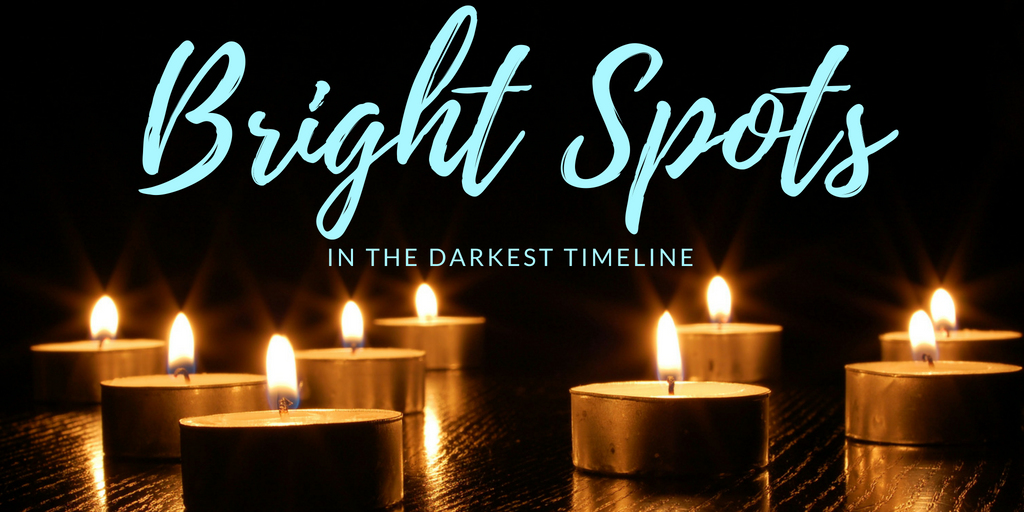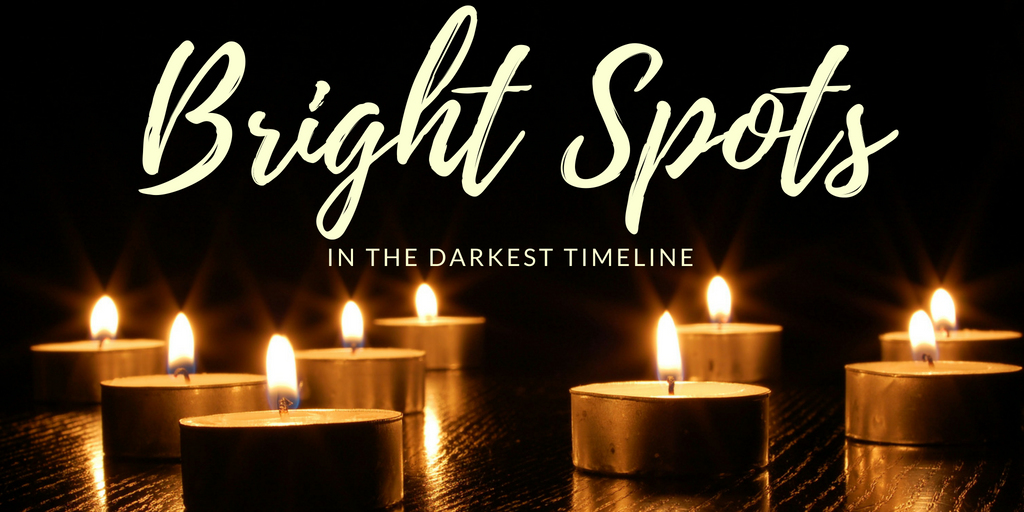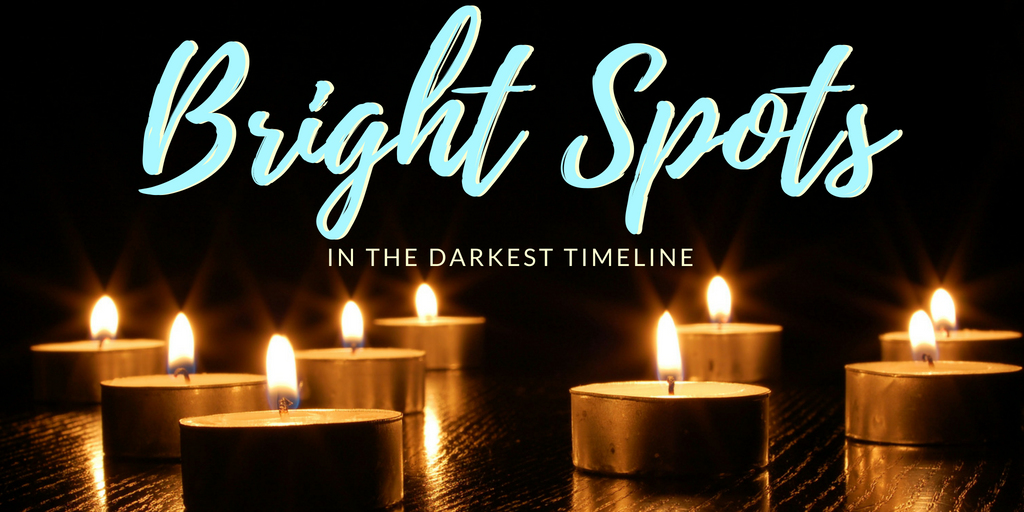For this year’s Giftmas blog tour has an advent theme each participant has donated a story — one each day between now and Christmas Eve, with a special surprise on Christmas Day. Not every participant has an active blog, however, and so for those couple who do not it is my pleasure to host them here. Kurt Kirchmeier is one of those people. I first met Kurt waaaay back in the day when I had the pleasure of including one of his stories in Niteblade, so it’s a joy to share this one with you here.
Before we get to the story, however, a quick word about the tour, if I may. The purpose of the blog tour is to fundraise for the Edmonton Food Bank. We do that by collecting donations through our Canada Helps page which you can find right here. We use Canada Helps because it’s easy, and also because then you can give with confidence knowing that the money is going exactly where it’s intended — to help struggling people. Also, by using Canada Helps it means Canadian contributors will be able to get a tax receipt. Oh, and American donors? You get some awesome value for your money because donations are all in Canadian dollars so the exchange rate will definitely work in our favour here 
Finally, in addition to offering a story a day to everyone who’d like to read them, we like to reward those people who do what they can to help out. However they help out. Whether that be by making an actual donation, helping to boost our signal or just leaving encouraging comments on the stories themselves. They all help. So we’ve got a rafflecopter with tonnes and tonnes of prizes. You can read the full list here but they include loads of books, critiques, a magazine subscription, dice and more.
Enter to win here:
a Rafflecopter giveaway
(If the widget doesn’t load for you click here, it will take you to the page so you can enter directly)
And now, without further adieu…
Souls on Display
Kurt Kirchmeier
We were playing road hockey when I broke Mr. Mandoka’s soul. It had been hanging in his living room window, strung from the curtain rod as though it were a sun-catcher. Which, I suppose, it sort of was; it certainly shattered like glass.
I’d known it was there, of course; we all did. In fact, we often joked about accidentally breaking it, about how bad we would feel if we did—robbing him of the afterlife and all. Still, I never imagined it would actually happen. Hard as my slap shots were, they were generally pretty accurate.
My friends just stared in the seconds that followed, their eyes wide with disbelief. Billy’s mouth dropped open, his huge wad of gum falling to the street. Billy was always chewing gum, and never just one piece, either. It was the whole pack or none at all.
“Old Man Mandoka’s gonna kill you,” he said. Chris and Evan nodded sagely behind him, the graphite shafts of their hockey sticks gleaming under the cold winter sun.
“Old Man Mandoka couldn’t kill a fly,” Evan’s little brother piped in. “He can hardly even walk.”
It was true; Mr. Mandoka was pretty old. However, having seen the size of the head on his cane, I couldn’t help but feel a little bit anxious. Jenna—the only girl on the block brave enough to play with us—shook her head. “Stupid,” she remarked. “Why’d he have it hanging in the window anyway?”
It was a question we’d been asking both each other and ourselves for as long as I could remember. Why would anyone hang their soul in their window? Not only was it risky in the extreme but scandalous as well.
Everyone knew that.
Well, everyone but Mr. Mandoka, it seemed.
I left the others to ponder the question and ambled on up the driveway, unable to avert my gaze from the small bit of soul still hanging from the rod, spinning around and around on its string like the broken tip of a Christmas bulb.
Mr. Mandoka wasn’t home; we’d paused our game about a half-hour before to let his Caddy through. Nevertheless, my stomach sank as I sidled up to the window and peered in.
It was worse than I’d feared.
The soul (what was left of it) was scattered all across the living room floor, some in chunks the size of my fist, others in fragments no bigger than a marble—roughly the size that the entire thing would have been at birth, or so my mother often told me. I hated when she said that. The last image I wanted was that of my soul covered in afterbirth. I pushed the thought away and continued surveying the damage.
Though I’d seen it in its entirety many times, albeit from a distance, I’d never realized just how pretty Mr. Mandoka’s soul had been, color-wise, I mean: frosted lilac. Mine was green, and a putrid shade at that. I’d always hated it.
Fat Sam (he was actually a bean-pole) joined me at the window, followed immediately thereafter by the others. Jenna whistled low, and then loudly smacked her gum (Billy had a crush on her, so sometimes he would share).
“What’re you gonna do?” asked Shamus, who was the oldest of our crew.
I shrugged. Given the circumstances, I was pretty sure a simple “I’m sorry” wasn’t going to cut it.
“Wait, I guess,” I replied. What else was I supposed to do, run? It wasn’t as if I’d stolen a crab apple from the guy’s tree (that was the day before); I’d broken his soul for crying out loud, his one and only connection to the afterlife, his boarding ticket to paradise. The least I could do was stick around and explain to him how it happened, that it wasn’t on purpose.
“We still gonna play hockey?” Evan asked after a moment of awkward silence.
Jenna gave him a shove and called him an idiot, then stood there shaking her head. Evan had never been the sharpest knife in the drawer. More like a spoon, actually.
The eight of us milled around for a while on the snow-dusted lawn, none of us really knowing what to say. I could sense that the others wanted to leave but didn’t have the heart to let me take the blame alone.
“It’s okay guys,” I finally said, tossing them a bone. “You can go. I’m the one who broke it.”
“You sure?” asked Billy. I nodded. He shrugged, then immediately turned to Jenna, sensing an opportunity now that his afternoon had just freed up. “Wanna come over for hot chocolate?” he asked her.
She moved her head from side to side, as though weighing her options.
“Okay,” she finally agreed. I think Billy was beginning to win her over.
The others took their leave shortly thereafter, wishing me luck before filing away one by one. Fat Sam was the last to go. He gave me a reassuring punch on the shoulder and told me he would look on eBay when he got home.
I nodded and smiled, knowing that we could never afford to buy Mr. Mandoka a new one. Besides, there was really no proof that someone else’s soul—even if they’d willingly signed it over—could grant you passage to the afterlife. The general consensus was that it wouldn’t. Fat Sam, of course, knew all this himself; he was just trying to make me feel better. He stopped at the end of the drive and looked back over his shoulder.
“Chin up,” he said. Fat Sam always said that. I smiled again. I really was lucky to have such good friends.
Mr. Mandoka arrived home a short time later, his freshly washed Caddy shining brilliantly as it meandered up the drive. I swallowed hard and got up from the step, my hands shaking, my knees weak.
He sat there in his car for a moment, giving me a suspicious look. Then, as though he’d sensed it rather than seen it, his gaze shifted to the shattered living room window, where it remained for several long seconds. Finally he got out of the car, leaning on his cane as he stood.
“It was an accident,” I quickly said and motioned toward the net on the curb. “We were playing hockey and, well, I kinda missed.” I was speaking fast, sort of a half stutter.
He stood staring at the window. “Missed, huh?”
I immediately regretted my choice of words. I looked down at my shoes, my cheeks burning in spite of the wintry air. “I’ll pay for it,” I finally said. “The window, I mean.” It was a poor excuse for restitution, I knew, but I didn’t really have anything else to offer.
Mr. Mandoka nodded, jowls bouncing like miniature saddlebags. He joined me at the bottom of the steps, his face expressionless. “You know how to use a staple-gun?” he said.
A staple-gun? Confusion tied my tongue in a temporary knot, so I merely nodded like the idiot I felt.
“Well, c’mon then,” he replied, motioning for me to follow.
He led me down to his basement and, after a short search through a cluttered storage room, handed me a roll of clear plastic wrap, the sort often used to cut down on draft. He then set me to work, saying not a word about his soul.
Plastic wrap for the inside, quarter-inch plywood for the outside: my fingers were freezing by the time I finished, my gloves offering little in the way of insulation against the cold steel of the staple-gun. Mr. Mandoka inspected my work with wordless scrutiny.
Apparently satisfied that it would stand the test, he invited me back inside. He’d taken a shop-vac to the living room carpet while I was working, sucking up his soul as though it were soil from an overturned plant. He sat me down at his kitchen table in front of a steaming mug of hot cocoa, which I immediately wrapped my hands around.
“I appreciate you sticking around like you did,” he said as he took a chair opposite me. “Most boys would’ve run off.”
I smiled somewhat guiltily, for it wasn’t like I hadn’t thought about it, albeit only briefly. “You probably would have found out anyway.”
“Even so,” he said, “it shows responsibility. You’ve a heck of a work ethic, too.” He gestured vaguely toward the living room.
“I help my dad in the shop sometimes.”
“Is that so?” he said and looked at me strangely then, as if struck by a sudden thought. His eyes narrowed in silent appraisal, though what exactly he might be appraising me for, I hadn’t the faintest idea. I shifted uncomfortably in my chair, pretending like I didn’t notice.
“So is there anything else I can do?” I asked him. The one simple task he’d set before me, while not at all pleasant, did little to assuage my guilt. And the fact that the old man was being so nice to me didn’t help, either. Part of me wanted him to rage, to get it all out in one shot and have done with it.
That’s what my dad would have done.
“Hmm,” he said, again with the hard look of consideration. “Perhaps there is. Tell me, have you ever had a job?”
“I had a paper route once,” I said. “Does that count?”
“I’d say so,” he replied. “Did you like it?”
I shrugged. “It was okay, I guess.”
He rubbed his chin thoughtfully. “Well, what would you say if I offered you a different sort of job?” He held up his cane. “Can’t move around like I used to. Could use me an assistant.”
“Assistant?” I said. “For what?”
He smiled. “C’mon, I’ll show you.”
I followed him out the back door, inwardly reeling at the strange turn of events. I’d just broken his soul, and now he was offering me a job?
We stopped at the side of his garage, whereupon he drew a giant set of keys from his pocket and fumbled through them one by one, mumbling all the while about how they all looked the same.
“Here we are,” he finally said. “Get ready now, this might seem a little odd at first glance.” That said, he opened the door and then reached around the corner to turn on a light.
“Odd” could not have been more of an understatement.
The entire side of the far wall was covered with souls in sizes ranging from baseballs to breadboxes. They were hanging from hooks and sitting on shelves. A couple of them, the bigger ones, were dangling from the rafters above. The shapes and colors were as varied as the sizes. Some of them were round and blue, some triangular and fiery red. Others were similar to my
own: bulbous and misshapen, like pillow lava hardened beneath the sea. There was one in the corner so dark a purple it looked almost black.
I stood gaping on the threshold.
Mr. Mandoka chuckled. “It isn’t what you think,” he said and motioned towards the souls with his chin. “I made these. They’re replicas.”
“Replicas?”
“Indeed,” he said, and then with a wink, “and so was the one you broke, so you needn’t fret about it any longer. I regret to say that my real one’s been gone for quite some time. Took a tumble down the stairs, must have been, oh, twenty years back now.”
I stared at him, unblinking, stunned, and relieved all at once.
“But how?” I finally managed. “What’re they made of?”
“Glass,” Mr. Mandoka said.
I took a step inside, only then noticing the furnace in the corner, along with all the tools strewn about the place, most of which in no way resembled anything I’d ever seen my dad use. I glanced at Mr. Mandoka, who was now standing in the center of the workshop, leaning on his cane.
“What do you do with them?” I asked.
“Sell them,” he said. “Most of the time, anyway. Some are just practice pieces.”
“Sell them to who?”
He shrugged. “People like myself. Those who’ve broken their own. Happens more often than you think, you know. Broken souls, I mean. You just don’t hear about it is all. Heck, there’s probably a half-dozen on this street alone.”
I raised an eyebrow in surprise. I often eavesdropped on my mother and her friends as they gossiped over tea, so I was always up on things as far as the neighborhood was concerned. I couldn’t recall anyone having ever mentioned a broken soul before, much less a half dozen.
“But why?” I asked. “What good is a fake one?”
“Peace of mind,” he replied. “You ever been to a funeral?”
I nodded. “My aunt Mary died two months ago.”
“So you saw her soul, then, at the front of the church?”
Barring wishes to the contrary, a soul was always displayed during a funeral and then placed in the coffin just prior to burial, where it would continue to shrink until finally there was no trace of it whatsoever. Only then would the spirit have fully moved on.
I nodded again. I remembered my aunt’s soul well. It looked like something out of a Picasso painting.
“And was it her real soul, or just a replica?”
I made as if to speak, but then stopped myself. “Beats me,” I said after a momentary pause. “I never really thought about it.”
“Exactly,” Mr. Mandoka replied. “Most people wouldn’t. That’s why I sell them, so families don’t end up worrying needlessly. Like I said, peace of mind.”
“So they don’t tell their families? About them being broken?”
Mr. Mandoka shook his head. “Not usually, no.”
“Isn’t that dishonest, letting them think that they’re going to heaven when they’re not?”
“How do you know they don’t go to heaven?”
“How could they?”
Mr. Mandoka smiled. I got the distinct impression that he’d had this conversation before.
“What do you think heaven is?” he said.
“I don’t know. Whatever I want it to be, I guess.”
“Precisely,” he said. “Whatever you want it to be. Now let’s assume that your best friend. . . .” He waited for me to fill in the name.
“Billy,” I provided.
“Okay. Now let’s assume that Billy ends up breaking his soul and that you don’t; so you carry on up to heaven, and he goes to . . . wherever it is he goes to. If heaven really is whatever you want it to be, then wouldn’t you want Billy to be there with you?”
I turned the notion over a few times before replying. “I never thought about it like that before.”
“Not many people do,” Mr. Mandoka replied. “Not many people do.”
“So it doesn’t matter?” I asked. “Whether it gets broken?” It pretty much went against everything I’d ever been taught, both in church as well as school. Strangely enough, though, it made sense. At least to me it did.
Mr. Mandoka shrugged. “Maybe, maybe not. Perhaps we’re just born with them so that we know that something else exists. Something to base our faith on, I guess you could say. Then again, perhaps it’s just God’s way of telling us that life is fragile and that we should make the best of it while we have it.” He shrugged again. “It’s a mystery. The way I figure it, as long as you’ve lived a moral life, and as long as you’ve got people around who want you by their side after it ends, you’ll always have a place in heaven. It just might not be your own.”
I began my apprenticeship three days later, starting with the easy stuff: sorting cullet (raw glass), heating pipes, making newspaper pads, and preparing tools. Mr. Mandoka, meanwhile, explained to me the various techniques and finer points of the trade. Glass blowing, some might have called it, but Mr. Mandoka referred to it as “soul-forging.”
By and large, the work was tedious. I often spent hours on end with the customers beforehand, meticulously reconstructing their souls from whatever fragments and shards he or she had brought with them to the shop—can’t very well make a replica without seeing the original, after all.
It was during this time that Mr. Mandoka usually imparted his philosophy regarding the afterlife to the clients: “The Many Heavens Theory,” as he called it. I soon discovered he was as much a counsellor as he was a journeyman.
I also discovered why he’d had his own soul hanging in the window. It was a calling card of sorts, a mark of the trade. Only a privileged few knew of its meaning, and it was they who directed others to the shop. I continued playing hockey with the gang on the weekends, attributing my evening absences to a restoration project that Mr. Mandoka had me helping him with in restitution for my blunder. I told them the old man and I were rebuilding a Model-T roadster. None of them were the wiser. Not at first, at least.
It was only months later, after Fat Sam confided to me that he had accidentally shattered his own soul while taking it down from his closet, that I began to let my friends in on my secret. By this time, I had graduated from general shop duties and was learning about some of the more advanced aspects of the job, such as thread-wrapping and color application.
In light of my newfound skills, I took it upon myself to make Fat Sam’s my first solo project. Mr. Mandoka coached me, of course, but only by verbal means. As far as hands-on labor was concerned, it was all me. When I presented the finished creation to Sam a couple weeks later, he couldn’t even tell the difference.
Nor, for that matter, could Billy, several weeks after that.
He arrived on my doorstep on a sunny Sunday morning, garbage bag in hand, chagrin on his face.
“What happened?” I said.
He looked embarrassed at the thought of relating the tale.
Nevertheless, after persistent prodding on my part, he finally coughed it up.
“I dropped it in the bathtub,” he said.
I narrowed my eyes. “Why did you have it in the bathtub?”
He shrugged. “I was cleaning it.”
“Why?” Although I dusted my own from time to time, I’d never really given any consideration to actually scrubbing it spotless. Why bother? It wasn’t like I ever showed it to anyone. Billy looked the other way, his cheeks flushed. It was then that it hit me.
“You dog!” I said. “You were gonna show it to Jenna, weren’t you?”
They had become an item during the initial phase of my apprenticeship and had since been making the rest of us sick with all their “honey” this and “sweetie” that. I was happy for them, though—perhaps even a little bit jealous.
“I gotta know,” he replied. “You know?”
I nodded and left it at that. We’d all heard stories about soul mates.
Billy’s soul proved quite a challenge, one that I couldn’t help but laugh over. I might have guessed it would resemble a giant wad of well chewed bubblegum.
In the months and years that followed—fulfilling ones, for the most part—Mr. Mandoka became somewhat of a second father to me, so when he finally passed away—just days after my high school graduation—I found myself left with not only a cozy little bungalow and garage/soul-forge but also a profound sense of sadness. Long since estranged from whatever family he had left in the world (the reason, I’ll never know), Mr. Mandoka had bequeathed almost all of his worldly possessions to me, his only stipulation being that I continue with the work.
And so I did.
By the time I turned twenty-eight, I had replaced not only Fat Sam’s and Billy’s souls but also my own. I still worry from time to time, but then I find myself surrounded by those I love and can’t help but believe that we’ll all have our place in heaven. It just might not be our own.
In the meantime, I’ve got my new soul hanging in my window, strung from the curtain rod as though it were a sun-catcher.
“Souls on Display” originally appeared in GlassFire Anthology (PegLeg Publishing) in December 2007 and was later reprinted in Triangulation: Dark Glass (Parsec Ink.) in July 2009.
Kurt Kirchmeier lives and writes in Saskatoon, Saskatchewan. His stories and poems have appeared in Abyss & Apex, Shimmer, Tesseracts 15, Weird Tales, and elsewhere. Keep an eye out for his debut novel, THE ABSENCE OF SPARROWS, which will be hitting bookshelves in May, 2019, courtesy of Little, Brown Books for Young Readers. Visit Kurt online at www.kurtkirchmeier.net.
The blog tour continues tomorrow at Tiffany Michelle Brown‘s website with her story, “Anything But Plain”, and in case you missed it, yesterday’s story was “The Last” by Premee Mohamed.




 For over twenty years, Canadian author/ former biologist Julie E. Czerneda has shared her curiosity about living things through her science fiction, published by DAW Books. Julie writes fantasy too, her Night’s Edge novels (DAW) A Turn of Light and A Play of Shadow, winning consecutive Aurora Awards (Canada’s Hugo). Her Clan Chronicles series concluded in To Guard Against the Dark, Julie’s latest SF is Search Image, #1 of The Web Shifter’s Library. Next out is Clan Chronicles: Tales from Plexis. This winter she’ll be busy with her new fantasy standalone, The Gossamer Mage, out August 2019.
For over twenty years, Canadian author/ former biologist Julie E. Czerneda has shared her curiosity about living things through her science fiction, published by DAW Books. Julie writes fantasy too, her Night’s Edge novels (DAW) A Turn of Light and A Play of Shadow, winning consecutive Aurora Awards (Canada’s Hugo). Her Clan Chronicles series concluded in To Guard Against the Dark, Julie’s latest SF is Search Image, #1 of The Web Shifter’s Library. Next out is Clan Chronicles: Tales from Plexis. This winter she’ll be busy with her new fantasy standalone, The Gossamer Mage, out August 2019. 
 Alison McBain was born in Alberta, grew up in California and received her B.A. in African history and classical literature at U.C. Santa Cruz. After her nomadic twenties, she settled in Fairfield, Connecticut, where she is raising three girls and her husband.
Alison McBain was born in Alberta, grew up in California and received her B.A. in African history and classical literature at U.C. Santa Cruz. After her nomadic twenties, she settled in Fairfield, Connecticut, where she is raising three girls and her husband.

 Kate Heartfield is a former journalist in Ottawa, Canada. Her novel Armed in Her Fashion was published in spring 2018 by ChiZine Publications, and she has a time-travel novella, Alice Payne Arrives, coming in November 2018 from Tor.com Publishing.
Kate Heartfield is a former journalist in Ottawa, Canada. Her novel Armed in Her Fashion was published in spring 2018 by ChiZine Publications, and she has a time-travel novella, Alice Payne Arrives, coming in November 2018 from Tor.com Publishing.


